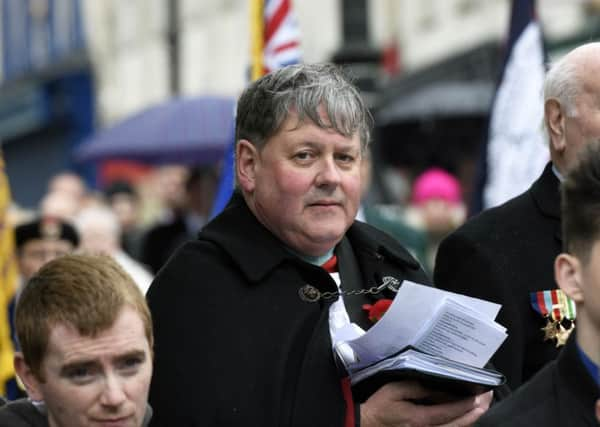Dean of Derry appeals for ‘supreme sacrifice’ to be remembered with faith, hope and love


In a recent address, which reflected on conflict across the globe, historically and current, he said they had been fought for the freedom to live, work and bring up a family, religious faith, freedom of speech, free government and the ideals of the freedom to exist and be cared for.
“When we remember those who fought in the World Wars and in more recent conflicts, for the causes of justice and truth, for what we believe in and for the freedoms we now enjoy, to live, to breathe, to worship, we honour them and salute them,” he said.
Advertisement
Hide AdAdvertisement
Hide Ad“Our task is to remember. If we do that in a sense of being better than others, holding on to anger against other nations, or by some misguided sense of glory, then we are very sad, pathetic people indeed. If, however, we remember to give honour to those whom we loved, and the values we cherish, if we remember to remember their supreme sacrifice before all else, and if we remember with faith, hope and love, then we remember well.
“Those who paid the supreme sacrifice matter. They were people who had names, were members of families and whose lives were taken from them. In the concentration camps, the Nazis deprived people of their names, and with a hot iron brand, had a number tattooed on them instead. Known by a number, not a name, that was the ultimate in saying a person is ‘a nobody’. If you have a name, you matter. The Reich de-humanised people by taking away their name and identity. Have we been any better in 40 years of the Troubles? So many forgot behind every name, every victim was a human, a family. The de-humanising is still going on today, and it is time it stopped”.
Recalling a conversation with a man who had visited a synagogue in Poland, what stood out was the inside walls were covered with thousands of names.
“Village by village, street by street, house by house, they recorded the names of all who had once lived there but perished. Hour by hour, minute by minute, the names are read out, in a perpetual memorial of the victims of persecution.
Advertisement
Hide AdAdvertisement
Hide Ad“At the heart of the national act of remembrance are two places which bear no names. The first is the Tomb of the Unknown Solider. No name can be written on that tomb, because the man buried there is not known by name to us. In that way every name can be associated with that place at the heart of Westminster Abbey and our national life. The other place is the Cenotaph, a cenotaph being a monument to someone buried elsewhere, a tomb with no one in it, in other words an empty tomb.
“An empty tomb and a name lie at the heart of the Christian hope. Give thanks and remember. May they rest in peace,” he said.